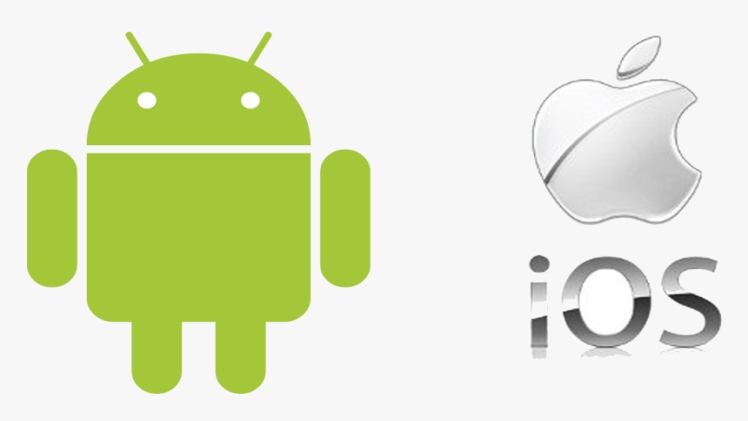Android and iOS are two of the most popular mobile operating systems in the world. While they may seem similar on the surface, there are many differences between them that influence a developer’s decision when deciding which one to use for their next project. We’re going to look at some of these differences and discuss what they mean for your future development plans.
Android vs iOS Development
Android vs iOS development: this seems like an unending debate, but it’s not. There are pros and cons to both platforms. For end users – most people, every mobile app is the same.
However, a lot of businesses are confused between what iOS and Android offers.
Which one is the best?
The answer to this question may be different for each person, depending on the project and their personal preferences.
We’ll discuss some of the pros and cons of both platforms below to help you make an informed decision.
Android Mobile App Development: Pros and Cons
Android mobile app development deals with developing mobile applications for the Android operating system – which is Google’s operating system for its own smartphones and tablet devices. Most android apps are available officially on Google Play Store.
Pros of Android Mobile App Development:
Availability and Reach:
Android has a larger market share than iOS – Android is the leading mobile operating system in the world. More devices are running Android, so your app will be available to more people especially in developing countries.
Development Tools and Frameworks:
There are many tools for developing apps in various programming languages for Android. It is easier to publish apps on the Play Store with less submission restrictions than iOS has.
Open source:
Android has an open app ecosystem which means developers can create and publish apps using any IDE.
Flexibility:
The OS is designed to be more open, giving the developers greater freedom over how their apps are built.
App Release:
Google’s Play Store acceptance process is easier than Apple’s. Because of this, Android apps are usually released faster than iOS.
Hardware Independence:
In mobile app development, among other things you need app development tools such as Android Studio, Eclipse, Fabric etc. which can be downloaded for use on Windows, Mac, Linux unlike iOS which are only compatible with only Mac or a virtual machine.
Cons of Android Mobile App Development:
Cost:
Android apps are generally more expensive than their iOS counterparts. This is attributed to the fact that more testing is required for Android apps.
Fragmentation:
Android’s fragmentation is a major disadvantage for the operating system. Due to the many different versions of the OS, certain features might not be available on all devices. This also makes the design and testing of apps more complex.
Lower spending habits:
Android users spend less on apps or in-app than iOS users. A major factor for this is related to the demographics of Android users – most of them live in developing countries.
Security:
Android is considered less secure than iOS. The open-source nature is a coin with two sides. While this openness appeals to developers, it also leads to security problems.
Copyright issues:
Android apps are more prone to copyright and trademark infringements. Because the app approval process is less rigorous than iOS, a lot of pirated apps are often uploaded on the Play Store.
iOS Mobile App Development: Pros and Cons
iOS mobile app development deals with developing apps for the iOS operating system – which is Apple’s own operating system. The OS runs on iPhone and iPad devices.
Pros of iOS mobile app development:
App Quality:
iOS apps are of higher quality by default because they need to pass Apple’s strict approval process. This means that the app will be safer and more reliable.
Higher Spend:
iOS is available on a smaller range of devices, but its market share is much higher than Android. This means that your app will be available to a smaller set of people, but those who do use iOS are more likely to spend money on your app.
Security:
Apple’s strict approval process means that the quality of apps is much higher. This also means that the app will be more secure.
Brand Recognition:
iOS has a higher degree of brand recognition than Android does, so your app will be associated with Apple’s brand.
Cost:
Generally speaking, iOS mobile app development is relatively cheaper than Android since you’re building for a smaller set of devices compared to Android which runs on a lot of different devices – hence more testing is required.
Cons iOS mobile app development:
App Release:
Apple’s strict approval periods cause apps to take longer to release than Android.
Hardware dependent:
Tools required for the development of mobile apps for iOS devices can only be used on Mac or a virtual machine. This can drive up the initial cost from acquiring a mac.
Brand Restriction:
Your app will only work on Apple devices – which means that your potential customer base is limited to those who use iPhones and iPads.
Android vs iOS Development: How do you choose?
The decision to choose would depend on your needs and what you want to achieve. For instance, if your business is high-end and particularly localized to Western Europe, UK, USA, then it might be best to use iOS because of the higher spending habits of iOS users.
On the other hand, if you’re targeting a global market without any particular preferences for English-speaking markets, then Android is a good option.
These rules are not set in gold however.
Irrespective of what you decide to use, the best thing to do is to hire the top and reliable app developers.
Why?
This is because of the many advantages that come with outsourcing your app development to a professional team. Outsourcing provides you access to skilled developers who are well-versed with the latest trends in mobile app development. It also ensures that your project is taken care of by people who know what they are doing.
Furthermore, due to the extensive nature of mobile app development – tons of frameworks, libraries, and tools are used means an individual would struggle to keep up with the latest trends, get bogged down by all of the requirements, and more likely come up with a final app that ‘s not up to par.
And because the competition is so fierce nowadays, a poorly built app will not only fail to live up to expectations but it will also be unprofitable. In most cases, you won’t get a second chance to try and make up for your mistakes.
Finally, an advantage that can’t be overlooked is that outsourcing allows you to focus on your other business areas and activities, while phone app developers take care of the task for you. This means that you will have more time to focus on your core business and activities, which should result in higher potential for success.
In conclusion, if you’re still confused about what to choose, we recommend you get in touch with a reliable development agency to help you decide which platform is best for your needs.

